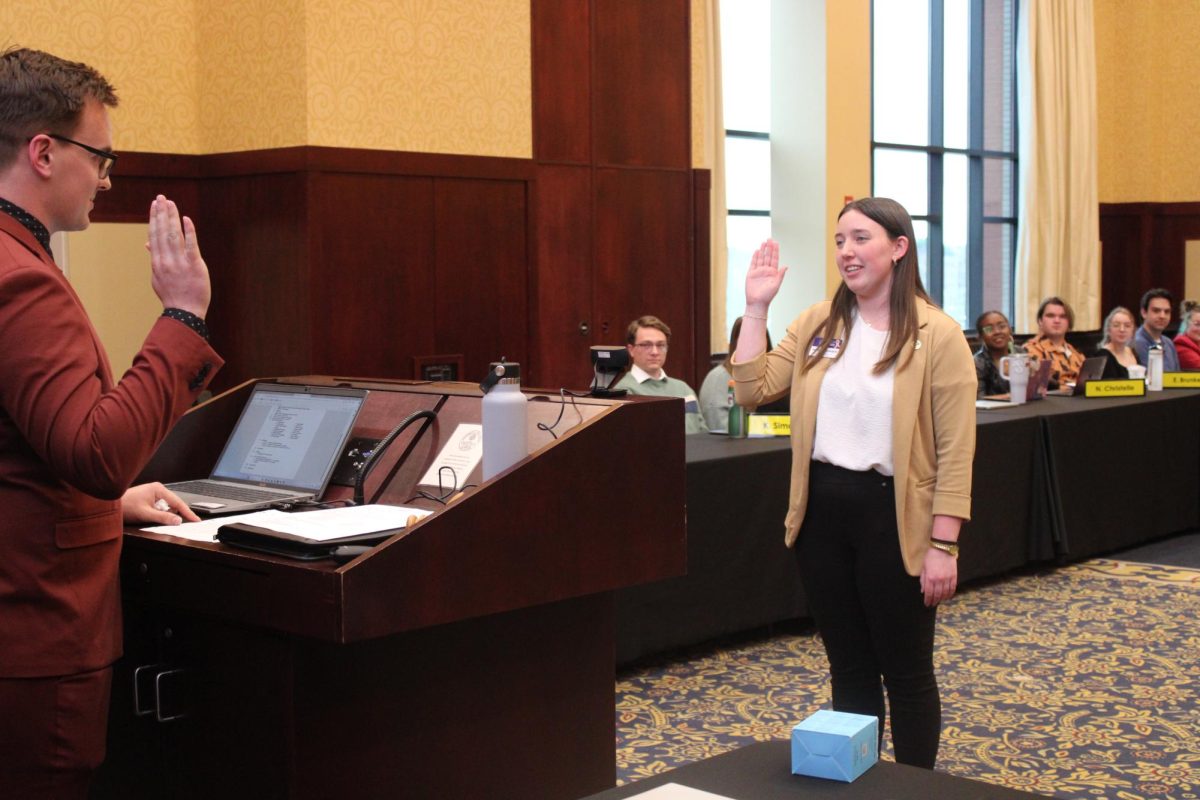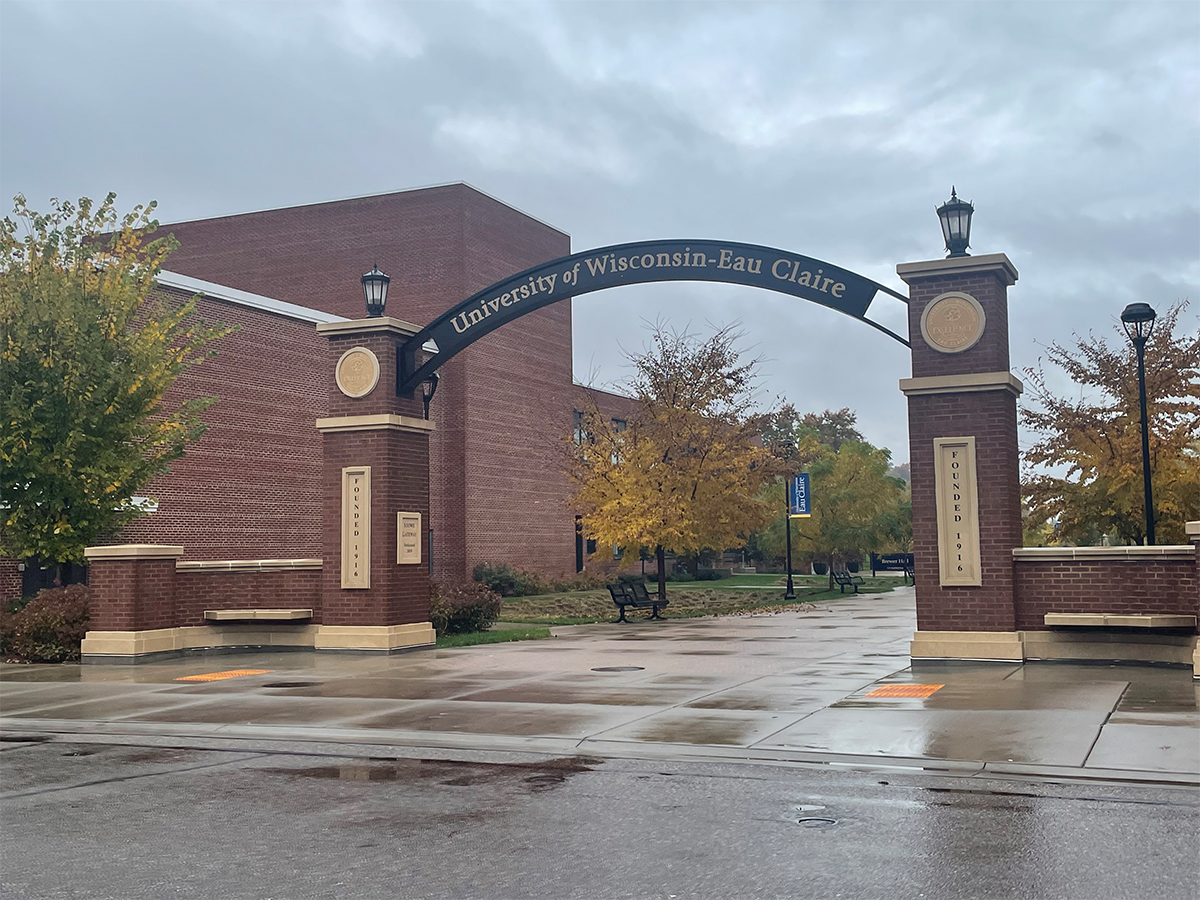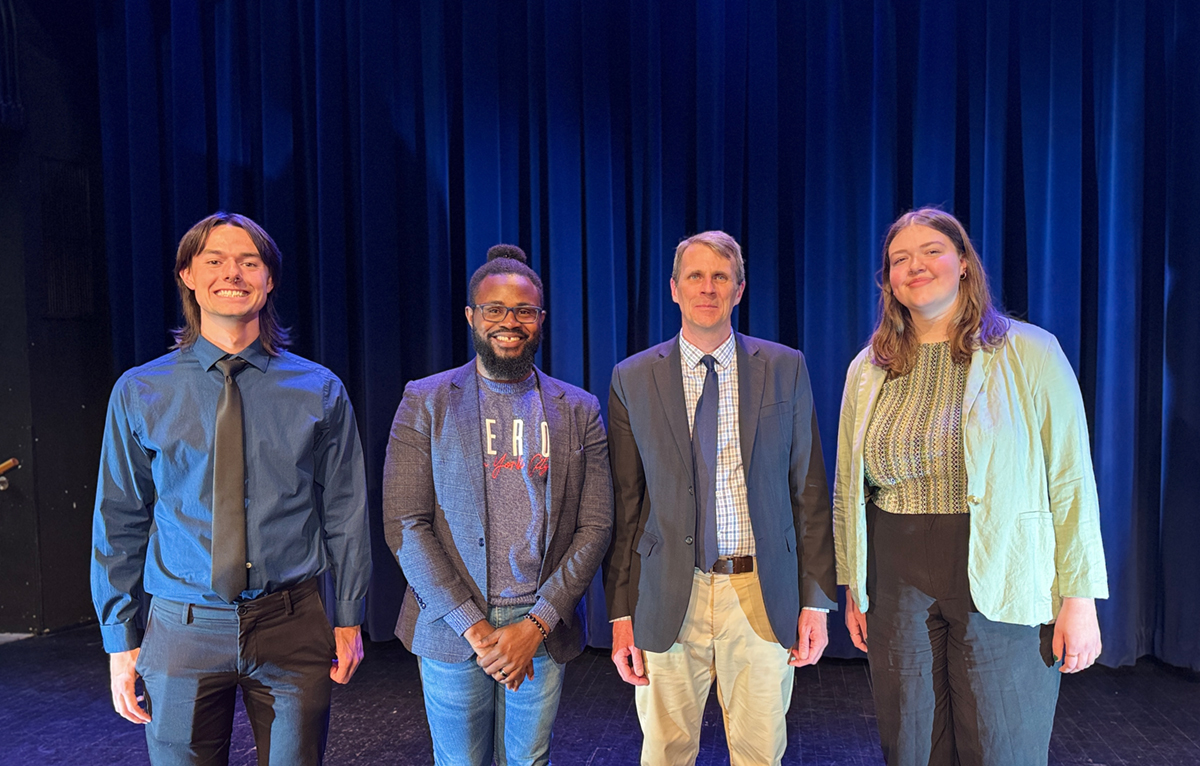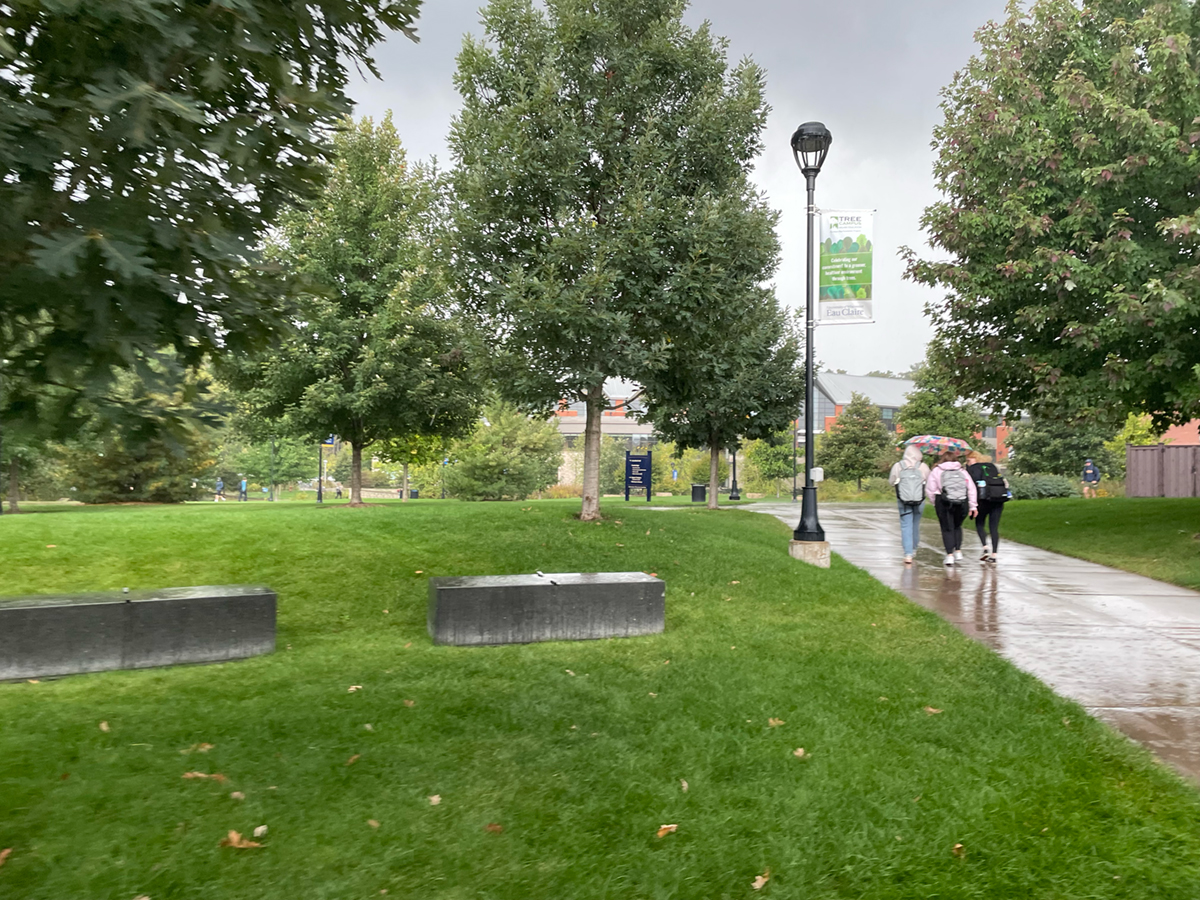Students experiencing problems with slow connections to the Internet are not alone, according to UW-Eau Claire’s Computer Networking Services.
In theory, the average connection to the Internet on campus is about 1,800 times faster than that of a dial-up modem, said Craig Mey, interim director of CNS.
“There are approximately 14,000 students, staff, faculty and alumni that use this resource,” he said.
Students living in residence halls, such as sophomore Erin Gibson, who uses the Internet for purchasing tickets and researching her favorite bands, have noticed that their Internet connections are slower than last year.
“My connection has been pretty slow lately,” Gibson said, “and I know my roommate has been having problems with hers as well.”
Sophomore Jessica Solem, a Bridgman Hall resident, said she has not had problems with her connection.
CNS Help Desk Coordinator Coreigh Utegaard said the reason people may experience a slow connection is rooted in the large number of users of the network.
“Some complaints have been voiced (about slow connections),” he said, “but in all cases once the situation has been explained, students and staff understand that resources are not unlimited.”
Mey emphasized the proliferation of “peer-to-peer” software, such as Kazaa and Morpheus, programs he said that are “designed to yield to nothing and will consume all available (network) bandwidth.”
“With every song a user downloads,” he said, “the application they are using turns around and services it right back out to the Internet community, easily ten-fold.”
Utegaard said that CNS puts network bandwidth usage limits on users who download a large amount of files from off-campus servers.
“CNS Technical Services must make sure that no individual users consume more than their fair share of resources,” he said.
According to the CNS Web site, different limits are placed on users, depending on the amount of data downloaded and the frequency of downloads over the threshold.
For example, if a user transfers an amount of data in one day that exceeds the average of all users on the network by a CNS determined amount, they will be limited in their access for one day.
Both Utegaard and Mey said that budget concerns play a role in the limits.
According to CNS, the cost of Internet access has been steadily increasing with each academic year.
Internet service provider WiscNet provides Internet access to UW-Eau Claire and the bill for service jumped from $32,000 for the 2000 school year to $392,000 for last year.
Growth projections from CNS, estimate that the cost for this academic year will be approximately $750,000.
Students pay a portion of the cost via the Student Technology Fee, which is part of tuition, Mey said.
In terms of solutions to the speed issues, he said that there is no “canned solution” to the connection problems; it is the responsibility of the user to download reasonably.
“The problem isn’t so much of a problem, but rather a bad habit,” he said. “All users need to be aware of the impact they cause every time one of them fires up a file sharing application.”
He also stressed the importance of using the bandwidth for academic uses.
“As a university, our primary goal is to ensure that everyone’s academic needs are met,” he said. “The sharing of copyrighted material does not fit these needs.”






